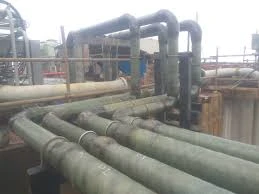
-
 Afrikaans
Afrikaans -
 Albanian
Albanian -
 Amharic
Amharic -
 Arabic
Arabic -
 Armenian
Armenian -
 Azerbaijani
Azerbaijani -
 Basque
Basque -
 Belarusian
Belarusian -
 Bengali
Bengali -
 Bosnian
Bosnian -
 Bulgarian
Bulgarian -
 Catalan
Catalan -
 Cebuano
Cebuano -
 China
China -
 China (Taiwan)
China (Taiwan) -
 Corsican
Corsican -
 Croatian
Croatian -
 Czech
Czech -
 Danish
Danish -
 Dutch
Dutch -
 English
English -
 Esperanto
Esperanto -
 Estonian
Estonian -
 Finnish
Finnish -
 French
French -
 Frisian
Frisian -
 Galician
Galician -
 Georgian
Georgian -
 German
German -
 Greek
Greek -
 Gujarati
Gujarati -
 Haitian Creole
Haitian Creole -
 hausa
hausa -
 hawaiian
hawaiian -
 Hebrew
Hebrew -
 Hindi
Hindi -
 Miao
Miao -
 Hungarian
Hungarian -
 Icelandic
Icelandic -
 igbo
igbo -
 Indonesian
Indonesian -
 irish
irish -
 Italian
Italian -
 Japanese
Japanese -
 Javanese
Javanese -
 Kannada
Kannada -
 kazakh
kazakh -
 Khmer
Khmer -
 Rwandese
Rwandese -
 Korean
Korean -
 Kurdish
Kurdish -
 Kyrgyz
Kyrgyz -
 Lao
Lao -
 Latin
Latin -
 Latvian
Latvian -
 Lithuanian
Lithuanian -
 Luxembourgish
Luxembourgish -
 Macedonian
Macedonian -
 Malgashi
Malgashi -
 Malay
Malay -
 Malayalam
Malayalam -
 Maltese
Maltese -
 Maori
Maori -
 Marathi
Marathi -
 Mongolian
Mongolian -
 Myanmar
Myanmar -
 Nepali
Nepali -
 Norwegian
Norwegian -
 Norwegian
Norwegian -
 Occitan
Occitan -
 Pashto
Pashto -
 Persian
Persian -
 Polish
Polish -
 Portuguese
Portuguese -
 Punjabi
Punjabi -
 Romanian
Romanian -
 Russian
Russian -
 Samoan
Samoan -
 Scottish Gaelic
Scottish Gaelic -
 Serbian
Serbian -
 Sesotho
Sesotho -
 Shona
Shona -
 Sindhi
Sindhi -
 Sinhala
Sinhala -
 Slovak
Slovak -
 Slovenian
Slovenian -
 Somali
Somali -
 Spanish
Spanish -
 Sundanese
Sundanese -
 Swahili
Swahili -
 Swedish
Swedish -
 Tagalog
Tagalog -
 Tajik
Tajik -
 Tamil
Tamil -
 Tatar
Tatar -
 Telugu
Telugu -
 Thai
Thai -
 Turkish
Turkish -
 Turkmen
Turkmen -
 Ukrainian
Ukrainian -
 Urdu
Urdu -
 Uighur
Uighur -
 Uzbek
Uzbek -
 Vietnamese
Vietnamese -
 Welsh
Welsh -
 Bantu
Bantu -
 Yiddish
Yiddish -
 Yoruba
Yoruba -
 Zulu
Zulu
fiberglass oil tank
Fiberglass Oil Tanks A Comprehensive Overview
In the realm of fuel storage and transportation, fiberglass oil tanks have emerged as a prominent option due to their numerous advantages over traditional materials. These tanks are primarily constructed from fiberglass-reinforced plastic (FRP), a composite material known for its durability, corrosion resistance, and relatively lightweight nature. This article delves into the features, benefits, and considerations regarding fiberglass oil tanks, exploring why they are favored in various applications.
Understanding Fiberglass Oil Tanks
Fiberglass oil tanks are designed to store various types of fuels, including gasoline, diesel, and heating oil. Their construction comprises layers of fiberglass and resin, which are molded to create a robust and impermeable structure. This design allows for efficient storage while mitigating the risks of leaks and contamination that can occur with metal tanks over time.
Key Features and Benefits
1. Corrosion Resistance One of the standout features of fiberglass oil tanks is their resistance to corrosion. Unlike steel tanks, which can rust and degrade due to degrading environmental conditions and the chemical properties of fuels, fiberglass does not corrode. This characteristic ensures the tank's longevity and reliability, even when exposed to harsh substances or environmental conditions.
2. Lightweight and Easy to Install Fiberglass tanks are significantly lighter than their steel counterparts, making them easier to transport and install. The reduced weight not only simplifies the logistics involved in moving the tanks to the installation site but also lowers overall installation costs, as less heavy machinery is needed for positioning.
3. Flexible Design Options Fiberglass can be molded into various shapes and sizes, allowing manufacturers to tailor tanks according to specific customer needs. This flexibility means that fiberglass tanks can be designed for smaller residential applications or larger commercial endeavors, adapting to various storage requirements.
fiberglass oil tank

4. Environmental Safety With the growing concern about environmental protection, fiberglass oil tanks offer a safer alternative. They are designed to prevent leaks, ensuring that the stored fuel does not contaminate the surrounding environment. Many fiberglass tank manufacturers also implement double-wall designs, providing an additional layer of security against leaks.
5. Cost-Effectiveness Although the initial investment for fiberglass oil tanks may be higher compared to metal tanks, their long-term cost-effectiveness is notable. The durability and resistance to corrosion lead to lower maintenance costs over time. Additionally, the lifespan of fiberglass tanks often exceeds that of traditional tanks, providing long-term savings for operators.
6. Compliance With Regulations With increasing government regulations surrounding fuel storage, especially concerning environmental safety, fiberglass oil tanks often meet or exceed these requirements. Manufacturers build these tanks to comply with local, state, and federal regulations, ensuring that users adhere to legal standards.
Considerations When Choosing Fiberglass Oil Tanks
Despite their many benefits, there are considerations to keep in mind when selecting fiberglass oil tanks. It's important to ensure the tank is properly installed by professionals who understand the specific guidelines for these products. Moreover, while fiberglass is resistant to many chemicals, it may not be suitable for storing certain aggressive chemicals. Users should always check with the manufacturer about compatibility with the specific fuel types.
Conclusion
Fiberglass oil tanks stand at the forefront of innovative fuel storage solutions. Their unique properties, such as corrosion resistance, lightweight construction, and compliance with environmental regulations, make them an ideal choice for both residential and commercial applications. By understanding the benefits and considerations involved in using fiberglass tanks, businesses and individuals can make informed decisions that prioritize safety, efficiency, and environmental stewardship. As the demands for reliable and sustainable fuel storage continue to grow, fiberglass oil tanks represent an excellent investment for the future.









